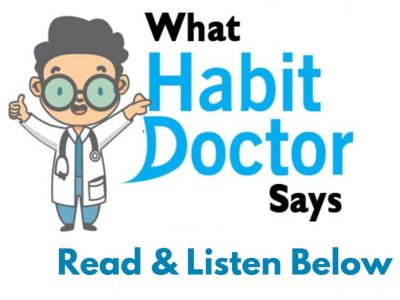Many of the most pressing issues prevailing in society such as health and wellness, illness, emotional state, costs and expenses, and climate change are deeply rooted in the behavior of an individual. People form opinions and pay importance to an individual’s behavior. A person’s behavior defines who he actually is.
Even minor changes in daily behaviors can lead to considerable benefits. It seems like an impossible thing to do, but actually, changing one’s daily habits is not that hard. There are many people who have successfully adopted new behaviors and habits and benefitted from them. On the other hand, many start but fail to maintain new habits over time. This common problem has been observed in the majority of people and has inspired interest in the habit. In psychology, habitual behavior is defined as those actions which are triggered automatically as a reaction to certain things when people find themselves in certain situations. People tend to act the same way in such situations as they earlier used to or have been doing.
Repeating similar actions and consistent behavior in a similar context augments mental associations between similar situations or contexts and behavior. A habit is said to have developed in a person when exposed to similar situations or things non-consciously brings up the same reactions. This influences behavior with minimal conscious and forward planning.
How do Habits turn to behavior?
To lay it out in the simplest form, every habit starts with a psychological pattern of the “habit loop,” which is actually a 3 part process, known as the 3 Rs of Habit formation. First among the habit loop is a trigger or cue, which tells the brain to turn to an automatic mode and let the behavior unfold.
The second step is the “Routine”, which is actually the behavior itself. Routine is what an individual thinks about when he is thinking about his habits.
The third step is your reward. It is an automated reaction to something that your brain likes. Your brain liking a certain thing about that reaction helps it remember the habit loop in the times coming ahead. Now you know where those natural instinct reactions come from? We never forget the things we like and the same does our brain. After several studies, neuroscientists have cracked the code and have been able to trace down the habit-making behaviors to a part of the brain, known as the basal ganglia. It also plays an essential role in the development of behaviors, emotions, memories, and recognitions in similar contexts and patterns.
How different is the decision making that behavior?
Decision making is yet different and cannot be clubbed together with habits or behavior. Decisions are made in the Prefrontal Cortex, a different part of the brain. But once a behavior turns to an automatic reaction by the brain or body, the decision-making part of your brain snoozes or goes into a sleep mode.
Take a break
It can be stressful coping with the new habits and adjust yourself to new habits. Even the well supported and systematic ones can be tough to add to your behavior pattern, new habits can be very fragile. It’s important to be prepared for a relapse. Many people fail to maintain their habits. Get back on your feet with dedication and you will achieve your goals. in this case, you will be able to manage and adjust to the new habits and make them a part of your behavior. To better understand, imagine yourself in a scenario, you have been incredibly dedicated and disciplined to go to the gym each day, but one day you skip that. One day of failure and most of the people get ready to trash the whole new habit cycle, thinking that it is obviously not working. Many may get disheartened also and forget their goal of getting fit, may spend all day eating chocolates and biscuits all day.
Stay Focused!
So the solution is to stay focused and have patience with making an activity or habit a part of your behavior. Build a good plan and make sure that you stick to it. Do not beat yourself up or feel low if you lapse. Consistent habits eventually turn to behaviors. Make sure they are good ones.
Get in touch with Living in Wellbeing and we can help you to stay focussed and consistent with your habits and behaviours.



Implementing your habits is like sculpting a sandcastle of well-being. Each grain contributes to the solid foundation of a healthier life